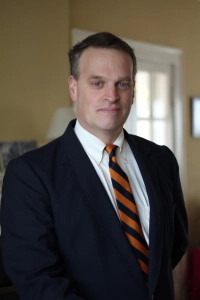Anyone who has studied history or philosophy will necessarily have become aware of various curiosities affecting the way people have spoken and expressed themselves in various times. I am not speaking about the various languages that people speak but rather the manner in which they think they must present ideas. For example when the early natural philosopher (or natural scientist) Empedocles spoke in the 5th century BC, people had a great respect for poets. And so Empedocles who wished to communicate his ideas about what everything is made out of (something we might call a ‘scientific subject’), wrote his science under the guise of poetry:
“Hear first the four roots of all things: bright Zeus, life-giving Hera, and Aidoneus, and Nestis who moistens the springs of men with her tears.”
Now what is he talking about? Well, he is simply communicating his discovery about the physical universe. Everything is made out of the four simple elements Earth, Air, Fire, and Water. As a matter of fact Empedocles is arguably the father of Chemistry (eat your heart out Lavoisier – you’re about 2000 years too late!). Just check out Empedocles’ formulas for the production of bone, flesh, and blood if you doubt it.
But my point is, why would Empedocles, the father of chemistry, feel compelled to write his purely scientific thoughts under the guise of poetry? The answer is quite simply that if one is going to convince and teach another, whose mind is under the influence of the prevailing intellectual custom of the day, well then, one might be inclined to speak to that person in the mode of that custom.
And I shall tell thee another thing. There is no substance of any of all the things that perish, nor any cessation for them of baneful death. They are only a mingling and interchange of what has been mingled. Substance is but a name given to these things by men.
Sounds to me like he is talking about, among other things, the law of conservation of matter. The elements sometimes come together and sometimes separate. But it sounds like poetry, and Empedolces evidently thought that he had to write in a poetic mode, because of the great respect the Greeks of his time still had for all the poets like Hesiod and Homer and even the illustrious poets of his own day.
Now contrast that with this passage from an article in USA Today entitled “Kids better off in two parent families”
Staying together for the sake of the children might not be such a bad idea after all, a report suggests.
Children from two-parent families are better off emotionally, socially and economically, according to a review of marriage research released Tuesday in The Future of Children, a journal published jointly by the non-partisan Brookings Institution and Princeton University’s Woodrow Wilson School.
Only in recent years has research shown the benefits of couples staying together; long-term studies on the children of divorce were not available earlier. But Census data show that single-parent families have increased while two-parent families have decreased.
Now, who in their right mind would ever doubt the assertion that children are better off when they are raised in a family with two parents? If someone, however, pressed me to prove the point, I have to admit that it would not have occurred to me to argue the point with any kind of empirical research. On the contrary, it seems to me that arguing from research is the weakest way of arguing this point. It would be far more compelling to prove this assertion though the much stronger ground of the common experience of all mankind, than to suggest that the truth of the assertion is based on the relatively flimsy research of private individuals. Certainly empirical research has a place. Aristotle taught us the importance of collecting experience and “data” from careful observation. He taught us the importance of research long before Francis Bacon. But is every question a matter of empirical research? NO!
We happen to live in an age in which everyone needs to pretend to be a scientist much like the way Empedocles pretended to be a poet. The intellectual custom of our age is not a custom of poetry but rather of “science.” In order to be heard and respected one must adopt a Math-y -science-y” way of speaking.
“Religion is good for people because research has demonstrated….”
“Long term studies have demonstrated that eating vegetables is actually good for….”
“Studies have shown that smiling is beneficial…”
“Recent longitudinal studies have confirmed that spending time with your children has positive….”
Someone is a slave to custom when they allow custom to limit their thinking. If a person refuses to be convinced about the truth of any matter without being shown a longitudinal study- he is a slave to custom.




But studies have shown that people will not accept anything as true unless there is a study that shows it.
But where is the study that shows that a study is the only way to the truth?